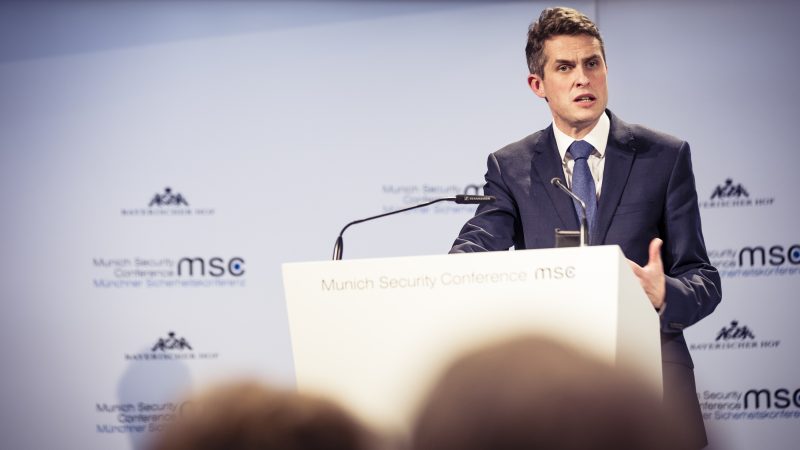Talking up the idea of a 'free speech crisis' is a favourite of Tories, but this latest ploy is pure hypocrisy.

The Covid crisis is hitting universities hard. Earlier this year, the Institute for Fiscal Studies (IFS) found that as a result of the economic downturn, the UK higher education sector will lose between £3bn and £19bn in the 2020/2021 academic year.
Research suggested that up to 13 universities could face financial ruin from the crisis, forcing job losses and the potential of bankruptcy. IFS’s Elaine Drayton, author of the report suggests: “If the government wants to avoid university insolvencies, by far the cheapest option would be a targeted bailout, which may cost just £140m”.
Responding to the idea of university bailouts, Education Secretary, Gavin Williamson (pictured), has suggested more rules upon universities that they must meet in exchange for government aid.
Williamson suggested that impacted institutions would have to “demonstrate their commitment” to free speech, while simultaneously closing courses that lead to unskilled employment and low graduate pay. If the government judged institutions as failing to fulfil these terms, they would be subject to closure or a potential takeover.
Putting aside the fact that the government appear to be imposing stronger requirements for a bailout upon our universities than they have for the air industry, the terms imposed by the government may appear reasonable: universities should be a bastion for free speech, and a degree should hypothetically contribute to professional and financial success.
Despite this, the issues highlighted may not be as clear cut as Williamson suggests. Writing for The Guardian, Evan Smith suggests that the idea of diminishing free speech in universities is a myth that has been circulating for up to 50 years. It forms part of a fabricated culture war by the ascending, populist right who wish to quash student ‘wokeness’.
Individuals are justifiably pushing back against bigotry by rightly ‘no platforming’ figures – such as Katie Hopkins – who should not be entitled to a platform on campus in the first place. Hopkins has since been booted off Twitter for violating its hate speech policy.
Smith’s argument appears to have merit: according to a study conducted by King’s College London, the majority of UK students don’t think free speech is under threat on campus. Similarly, the government’s own Joint Committee on Human Rights concluded that the claim of censorship in universities was false, their 2018 report suggesting: “The press accounts of free speech are clearly out of kilter with reality, a large amount of evidence suggests that the narrative that ‘censorious students have created a ‘free speech crisis’ in universities has been exaggerated.”
If the ‘free speech crisis’ in universities is fabricated, this looks instead like an attempt by Williamson to exacerbate an existing culture war – and boost the prospects of largely hard-right figures who students may choose to boycott.
Ignoring the irony of advocating free speech whilst simultaneously pushing to cull wider university teaching, the removal of courses based on subsequent graduate pay and perceived requirement of skill is also flawed.
According to the What do Graduates doreport published by Prospects and The Association of Graduate Careers Advisory Services (AGCAS), the majority of History graduates, upon leaving university, go into roles within the retail, catering, waiting and bar staff industries, jobs that are typically low paid and considered low skilled. By Williamson’s measures, the teaching of History would therefore be under threat. The same applies for courses such as English and to a lesser extent, Philosophy.
When traditional academic courses such as History, English and Philosophy initially lead to low paid and unskilled roles upon leaving university, would this be a good metric for the cancellation of courses? (Robert Jenrick and Jacob Rees-Mogg – both History graduates – may not be best pleased.)
In his attack on ‘wokeness’ on campus, Williamson is simply amplifying right-wing commentators and media outlets who – far from being silenced – hold a huge amount of sway.
Jamie Beauvais writes on social issues.
Left Foot Forward doesn't have the backing of big business or billionaires. We rely on the kind and generous support of ordinary people like you.
You can support hard-hitting journalism that holds the right to account, provides a forum for debate among progressives, and covers the stories the rest of the media ignore. Donate today.



